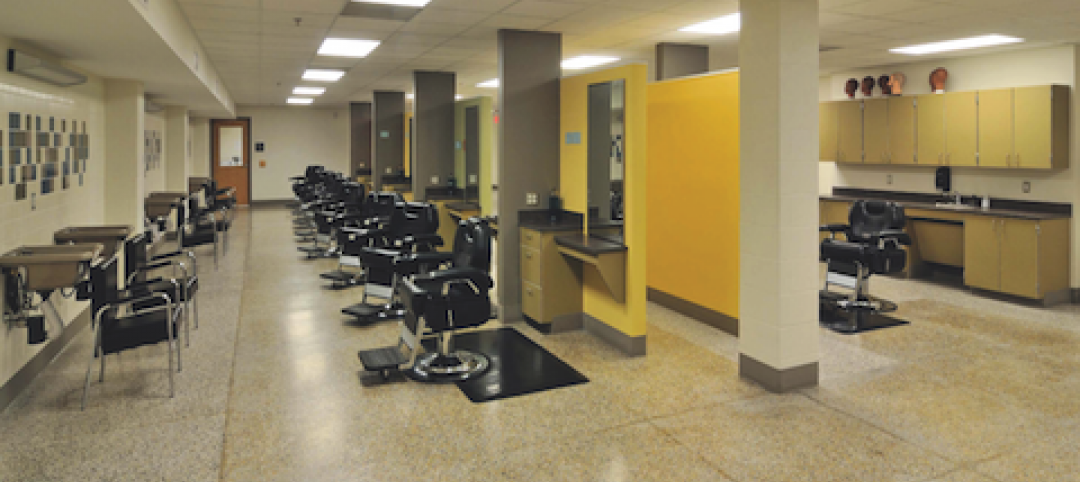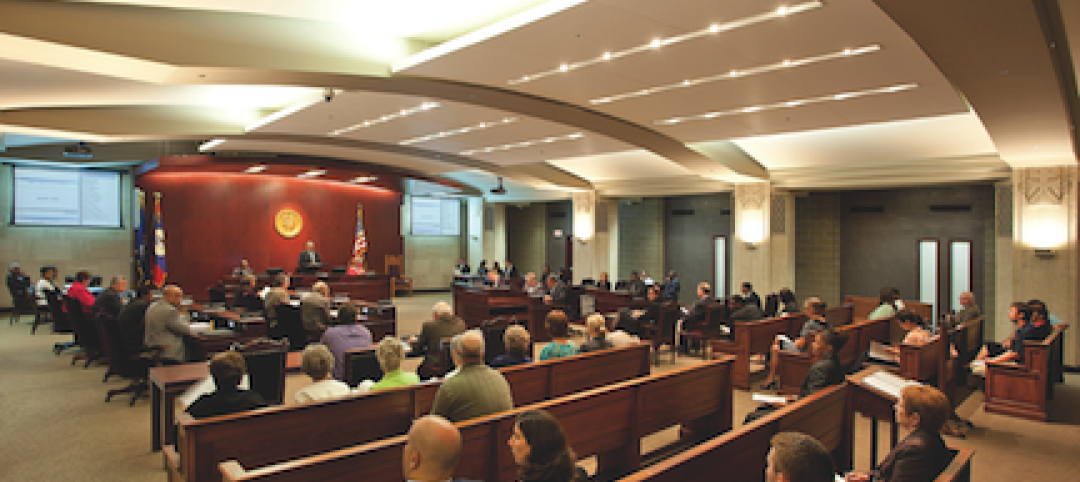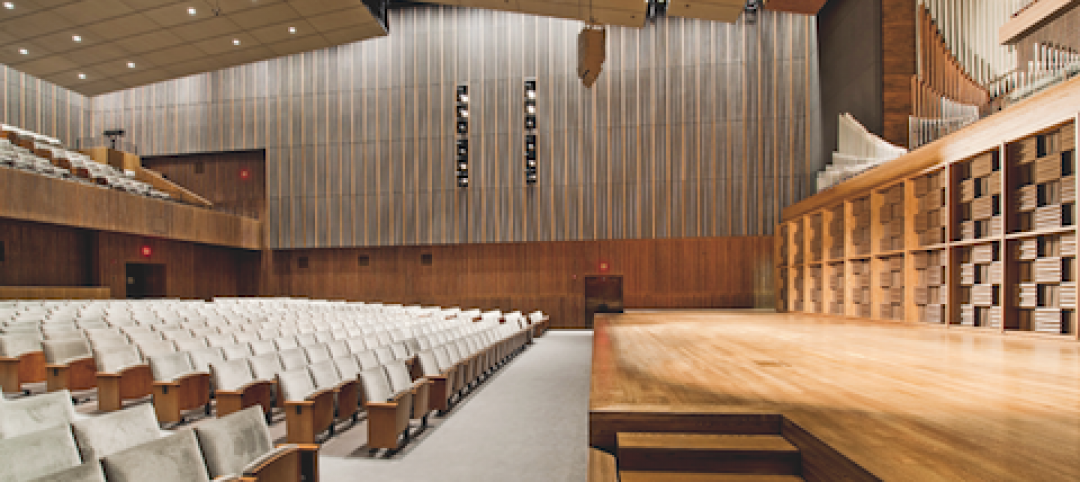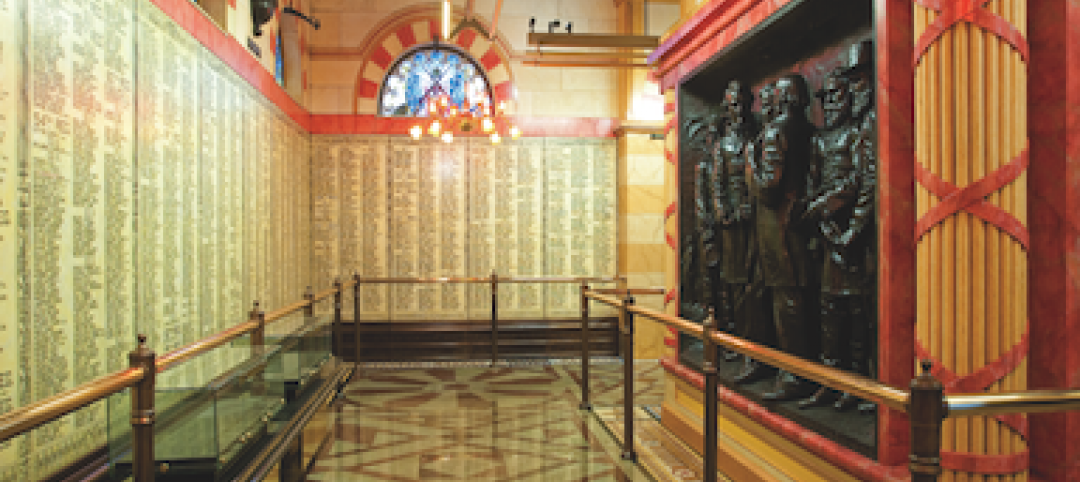U.K.-based Chetwoods Architects has revealed plans for a pair of skyscrapers that will be the tallest in the world when completed. The Phoenix Towers are expected to reach 1 km, the same height as Adrian Smith and Gordon Gill's Kingdom Tower, but would set a record for multiple towers in a single development, inhabitat reports.
The towers will be built on a 47-hectare island within a lake in Wuhan, China, the most populous city in central China. They are the focal point of Chetwood's four-pronged master plan for projects in China.
Outfitted with wind turbines, solar panels, thermal chimneys, and rainwater harvesting systems, the architects said that the towers will act as an "environmental catalyst" for the rest of the city.
On the towers' name and inspiration, the firm cites the traditional Chinese phoenix, which involves two birds: the male Feng and the female Huang.
"The plan was generated from yin-yang form to represent perfectly balanced union. Symbiotic: the Feng tower uses cutting edge technology to feed the Huang tower with renewable power," Chetwood Architects said in a statement.
More from the architects:
Arching bridge-like over the surrounding boulevards, each tower will have a unique personality and attributes: the Feng tower will lean towards the commercial zone, the Huang tower towards the cultural and recreational zone.
The project’s key emphasis is on the harmonious combination of 21st century Western technological know-how and experience with Chinese tradition and culture. In response to the Client’s wish to develop a new style of architecture that emphasizes Chinese identity, the use of a pair of towers reflects the dualist elements of Chinese culture in contrast to a more Western monolithic form.
The scheme will provide the environmental catalyst to re-invigorate the city, actively avoiding the disastrous consequences of developments elsewhere in China. It will form the nucleus of a wider green strategy linking Wuhan’s lakes environmentally and socially with the region’s landmark destinations and lake district along a 20km Green Wall of China to a new lakeside cultural tourist destination.
This landmark project will showcase social, economic and environmental sustainability within China, providing an entertaining and instructive experience for local people and visitors.
Structural features: Steel superstructure; concrete core with ‘hat’ truss; trussed structure at base; out-riggered for lateral stability; concrete buttresses.
Related Stories
| Oct 13, 2010
County building aims for the sun, shade
The 187,032-sf East County Hall of Justice in Dublin, Calif., will be oriented to take advantage of daylighting, with exterior sunshades preventing unwanted heat gain and glare. The building is targeting LEED Silver. Strong horizontal massing helps both buildings better match their low-rise and residential neighbors.
| Oct 12, 2010
Holton Career and Resource Center, Durham, N.C.
27th Annual Reconstruction Awards—Special Recognition. Early in the current decade, violence within the community of Northeast Central Durham, N.C., escalated to the point where school safety officers at Holton Junior High School feared for their own safety. The school eventually closed and the property sat vacant for five years.
| Oct 12, 2010
Guardian Building, Detroit, Mich.
27th Annual Reconstruction Awards—Special Recognition. The relocation and consolidation of hundreds of employees from seven departments of Wayne County, Mich., into the historic Guardian Building in downtown Detroit is a refreshing tale of smart government planning and clever financial management that will benefit taxpayers in the economically distressed region for years to come.
| Oct 12, 2010
Richmond CenterStage, Richmond, Va.
27th Annual Reconstruction Awards—Bronze Award. The Richmond CenterStage opened in 1928 in the Virginia capital as a grand movie palace named Loew’s Theatre. It was reinvented in 1983 as a performing arts center known as Carpenter Theatre and hobbled along until 2004, when the crumbling venue was mercifully shuttered.
| Oct 12, 2010
University of Toledo, Memorial Field House
27th Annual Reconstruction Awards—Silver Award. Memorial Field House, once the lovely Collegiate Gothic (ca. 1933) centerpiece (along with neighboring University Hall) of the University of Toledo campus, took its share of abuse after a new athletic arena made it redundant, in 1976. The ultimate insult occurred when the ROTC used it as a paintball venue.
| Oct 12, 2010
Owen Hall, Michigan State University, East Lansing, Mich.
27th Annual Reconstruction Awards—Silver Award. Officials at Michigan State University’s East Lansing Campus were concerned that Owen Hall, a mid-20th-century residence facility, was no longer attracting much interest from its target audience, graduate and international students.
| Oct 12, 2010
Gartner Auditorium, Cleveland Museum of Art
27th Annual Reconstruction Awards—Silver Award. Gartner Auditorium was originally designed by Marcel Breuer and completed, in 1971, as part of his Education Wing at the Cleveland Museum of Art. Despite that lofty provenance, the Gartner was never a perfect music venue.
| Oct 12, 2010
Cell and Genome Sciences Building, Farmington, Conn.
27th Annual Reconstruction Awards—Silver Award. Administrators at the University of Connecticut Health Center in Farmington didn’t think much of the 1970s building they planned to turn into the school’s Cell and Genome Sciences Building. It’s not that the former toxicology research facility was in such terrible shape, but the 117,800-sf structure had almost no windows and its interior was dark and chopped up.
| Oct 12, 2010
The Watch Factory, Waltham, Mass.
27th Annual Reconstruction Awards — Gold Award. When the Boston Watch Company opened its factory in 1854 on the banks of the Charles River in Waltham, Mass., the area was far enough away from the dust, dirt, and grime of Boston to safely assemble delicate watch parts.
| Oct 12, 2010
Cuyahoga County Soldiers’ and Sailors’ Monument, Cleveland, Ohio
27th Annual Reconstruction Awards—Gold Award. The Cuyahoga County Soldiers’ and Sailors’ Monument was dedicated on the Fourth of July, 1894, to honor the memory of the more than 9,000 Cuyahoga County veterans of the Civil War.




















